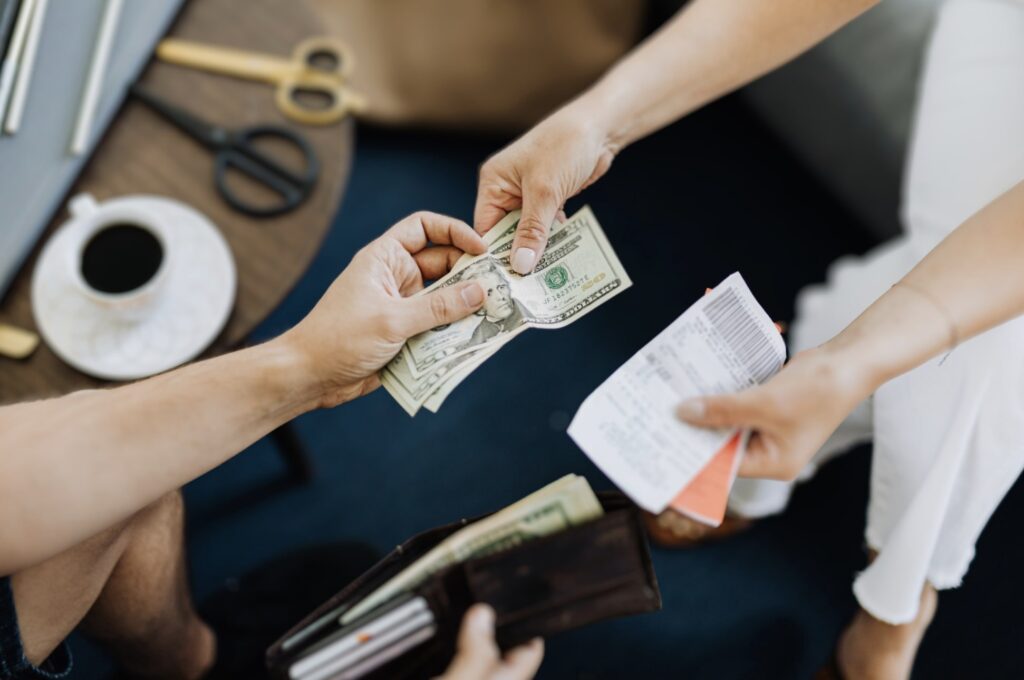When House Bill 1910 passed during the 88th legislative session in Texas, it changed how the law handles possession of forged money.
Texas law now takes into account the total amount of forged money the person has in their possession, under the presumption that they intended to spend all of it.
Read on to learn more about what Texas law has to say about possessing counterfeit money and what to do if you face accusations of having fake money.

Texas Penal Code, Section 32.21 Forgery
It is illegal to possess forged money, according to Section 32.21 of the Texas Penal Code, “with intent to defraud or harm another.”
Penalties are based, in part, on the amount of counterfeit money in question:
- Class C misdemeanor for less than $100
- Class B misdemeanor for $100 or more, but less than $750
- Class A misdemeanor for $750 or more, but less than $2,500
- A state jail felony for $2,500 or more, but less than $30,000
- A third degree felony for $30,000 or more, but less than $150,000
- A second degree felony for $150,000 or more, but less than $300,000
- A first degree felony for $300,000 or more
Note that with the passage of H.B. 1910 in 2023, the law now takes into account all counterfeit money the accused has in their possession, not just what they attempted to spend in one transaction.
Texas law presumes that the accused ultimately intended to spend all of the forged money in their possession.
Accused of Possessing Forged Money in Texas?
If you’re facing allegations of having counterfeit money, there are steps you can take to help preserve your legal rights.
Don’t consent to a search and seizure withouth a valid search warrant.
For example, if a store employee accuses you of trying to pass fake money and asks to see the contents of your wallet or purse, answer with a polite yet firm, “No.”
You may feel like you are trying to clear up a misunderstanding right on the spot, but nothing good will come from allowing anyone to look through your belongings without a search warrant. And, note that store security personnel may not be law enforcement, despite their similar-looking uniforms.
When in doubt about who you are talking to, ask to see the employee’s badge or other identification.
The same holds true if law enforcement comes to your house and asks to “take a look around.” Ask to see a search warrant before you let them in the door. Then, seek legal counsel ASAP.
Don’t wait to contact an attorney.
You don’t need to wait until you are formally charged with Possession of Forged Money to contact an attorney.
If you have the slightest inkling that you could be implicated with possession of forged money, it’s in your best interest to consult with an attorney right away.
By the time law enforcement makes an arrest, they have already built a case against the accused. Don’t wait. The sooner an attorney can protect your legal rights and build a strong defense strategy, the better.
Possession of Forged Money in Texas: FAQs
Below are some of the most commonly asked questions about possessing fake money. This information is a general overview of Texas law, and is not a substitute for contacting an attorney about your specific case.
What happens if you unknowingly have counterfeit money?
Texas law states that in order for possessing fake money to be a crime, there must be the intent to defraud or harm another.
When determining if criminal intent exists, the prosecution may consider several factors, including:
- The total amount of counterfeit money in your possession
- If the forged money looks realistic
- Your behavior or actions at the time you spent the money
- If you have been simultaneously charged with another crime
Don’t forget that the prosecution is not on your side. If you’re facing allegations of having counterfeit money, it’s wise to contact an attorney sooner rather than later.
Is passing a $20 counterfeit bill a felony?
According to Section 32.21 of the Texas Penal Code, it’s illegal to pass counterfeit money “with intent to defraud or harm another.”
Unknowingly possessing and then passing a fake $20 bill lacks criminal intent, but that doesn’t mean the prosecution won’t attempt to press charges.
But to answer the question — possessing a total of less than $100 in counterfeit money is a Class C misdemeanor in Texas.
When did Texas H.B. 1910 pass into law?
Texas House Bill 1910, pertaining to Possession of Forged Money, became effective on September 1, 2023.
Possession of Forged Money Defense Attorney in Plano
The passage of Texas H.B. 1910 in 2023 shows that the state takes possession of counterfeit money seriously. A strong defense can revolve around that you did not act “with intent to defraud or harm another.” You need an experienced and skilled attorney to build that defense for you.
Attorney Kent Starr has a long track record of defending clients facing tough charges like Possession of Forged Money. Take a few minutes to read through his Google reviews and watch his client testimonials.
Attorney Starr fights for the best possible outcome for his clients. You’ll see that he regularly achieves dismissals, not guilty verdicts, and probation instead of time behind bars.
Attorney Starr achieves these outcomes because he is not a “plea bargain lawyer.” It is a myth that accepting a plea bargain is always in the defendant’s best interest. Many lawyers push their clients to accept plea bargains because they are intimidated by the prosecution or too inexperienced to go to trial.
If putting your case in front of a judge or jury could be in your best interest, Attorney Starr is ready for trial.
Attorney Starr also has the added advantage of being a bail bonds attorney. Not all law firms in Plano have the financial capabilities to offer this service. With just one phone call, he can negotiate the terms of your release and start your legal representation.
Call Starr Law, P.C. today at 214-982-1408.
References
Bill Analysis: Texas House Bill 1910 – Possession of Forged Money
